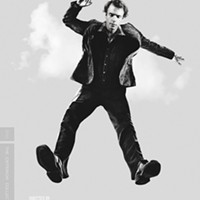[
{
"name": "Top Stories Video Pair",
"insertPoint": "7",
"component": "17087298",
"parentWrapperClass": "fdn-ads-inline-content-block",
"requiredCountToDisplay": "1"
}
]
The Case For Literature is the title of Gao Xingjian's address accepting the 2000 Nobel Prize for Literature, and also of this slim but powerful collection of his essays. Gao achieved his first success in China in the early 1980s with plays, and continued to write for the theatre, as well as fiction and literary essays through years of shifting political winds until he went into exile towards the end of the decade. His autobiographical novel, Soul Mountain, was published in the U.S. in the same year as his Nobel Prize, and remains his best known work in America.
For Gao, the purpose of literature is simply the search for truth. "... its value lies in discovering and revealing what is rarely known, little known or thought to be known, but in fact not very well known, of the truth of the human world."
But this truth is not in the realm of metaphysics or ideology. "Truth is perceptual and concrete. Full of life, truth is available for human observation at any time and in any place; it is the interaction between subject and object." It is the individual's "testimony of his times."
"The language required by literature comes from spontaneous speech that goes straight to truth" -- and that language must sing: "The musicality of language is of extreme importance, and music provides me with more insights than any sort of literary theory." "If I fail to hear music in the sentences I have written, I acknowledge defeat..."
But the individual expression Gao champions should not be confused with the self-indulgent and programmatic confessionals lining the bookstore shelves. "In this postmodern age, which is concerned only with consumerism, the unchecked bloating of the individual is already a far-off myth..." Though he rejects ideological purposes, he does believe literature has social benefit, in the creation of empathy. "Yet through literature there can be a certain degree of communication, so the writing of literature that essentially has no goal does leave people a testimony of survival. And if literature still has some significance, it is probably this."
Gao writes about his own approach to fiction and theatre, and (especially in a terse but harrowing chapter near the end) his battles with Chinese authorities, but all within the context of this literary purpose. Agree or disagree with his assertions, this is about the activity of creating literature -- the single voice singing a surviving truth beyond the amorphous noise.
—William S. Kowinski, author and Journal theatre critic
Speaking of Review
-

Hungry For Love
Dec 3, 2020 -

HSU Independent Review of UPD 'Uncovered Organizational Issues' Within the Department
Jun 17, 2020 -

And Everything is Going Fine
Nov 28, 2013 - More »
more from the author
-
TV or Not TV?
A Comic Dilemma at NCRT
- Sep 25, 2014
-
Unequivocal Success
Shakespeare in trouble at Redwood Curtain
- Sep 11, 2014
-
A Midsummer Night's Stage
Magic worlds at Redwood Park
- Aug 14, 2014
- More »
































